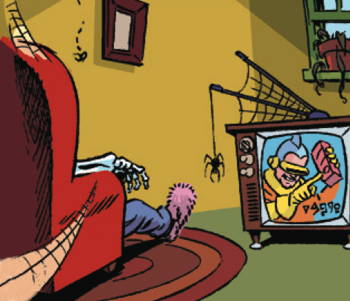October 2020
October 11, 2020
Carl Bohland’s Auto Wash Bowl
Carl Bohland patented the auto wash bowl in 1921. His idea was that cars would drive into a large, concrete bowl filled with water. After a couple of times around the bowl, the cars would be clean. Or, at least, cleaner.

Bohland managed to open a few auto wash bowls. The problem, however, was that his technique only really cleaned the underside of the cars. This was useful back in the days when many roads were still unpaved and their undersides constantly got filthy. But as road conditions improved, the auto wash bowl became less useful. By the 1930s, the last one had closed.
More info: vintag.es
Posted By: Alex - Sun Oct 11, 2020 -
Comments (5)
Category: Inventions, Patents, 1920s, Cars
The Germ-Hun
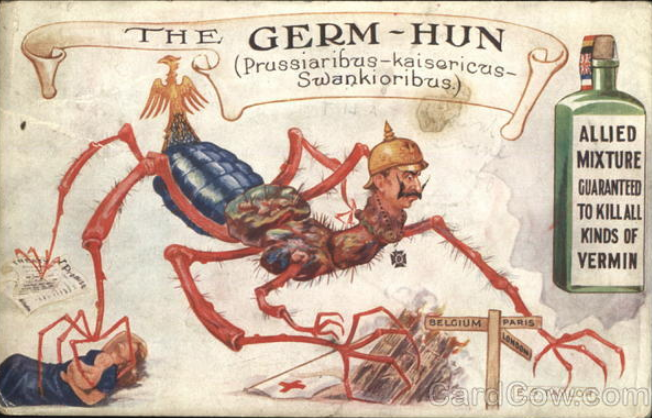
With thanks to Lawrence Person.
Posted By: Paul - Sun Oct 11, 2020 -
Comments (0)
Category: Excess, Overkill, Hyperbole and Too Much Is Not Enough, Hygiene, Propaganda, Thought Control and Brainwashing, War, Reader Recommendation, Europe, Twentieth Century
October 10, 2020
The Sound of Silence
1959: Students at the University of Detroit added a "silent record" to the student center jukebox, for those who needed a moment of silence.
Detroit Free Press - Jan 17, 1959

Canonsburg Daily Notes - Jan 20, 1959


Rochester Democrat and Chronicle - Jan 16, 1959
Posted By: Alex - Sat Oct 10, 2020 -
Comments (4)
Category: Music, 1950s
Gee, Your Hair Smells Terrific Shampoo

Source of print ad.
Posted By: Paul - Sat Oct 10, 2020 -
Comments (5)
Category: Hygiene, Advertising, 1970s, Attractiveness, Sexiness, Allure and Personal Magnetism
October 9, 2020
Flush Ratings
In 1974, the Lafayette waterworks in Louisiana revealed an apparent correlation between drops in water pressure and television viewing habits. In particular, the water pressure would drop immediately after popular shows and movies had aired... presumably from viewers waiting until the end of the shows to relieve themselves:So, the idea was floated that flush ratings might serve as a surrogate for the Nielsen ratings.
I had always thought that the idea of popular TV shows having an impact on sewage systems was an urban legend. However, while Snopes dismisses the idea that any shows such as the Superbowl have ever broken a city's sewage system, they allow the lesser claim that massive simultaneous flushing can put an observable strain on a city's waterworks, noting: "toilet use during breaks in large-audience programs can certainly be much higher than average."
Related post: Flush Polling

North Adams Transcript - July 5, 1974
Posted By: Alex - Fri Oct 09, 2020 -
Comments (2)
Category: Bathrooms, Television, 1970s
Modern Witches
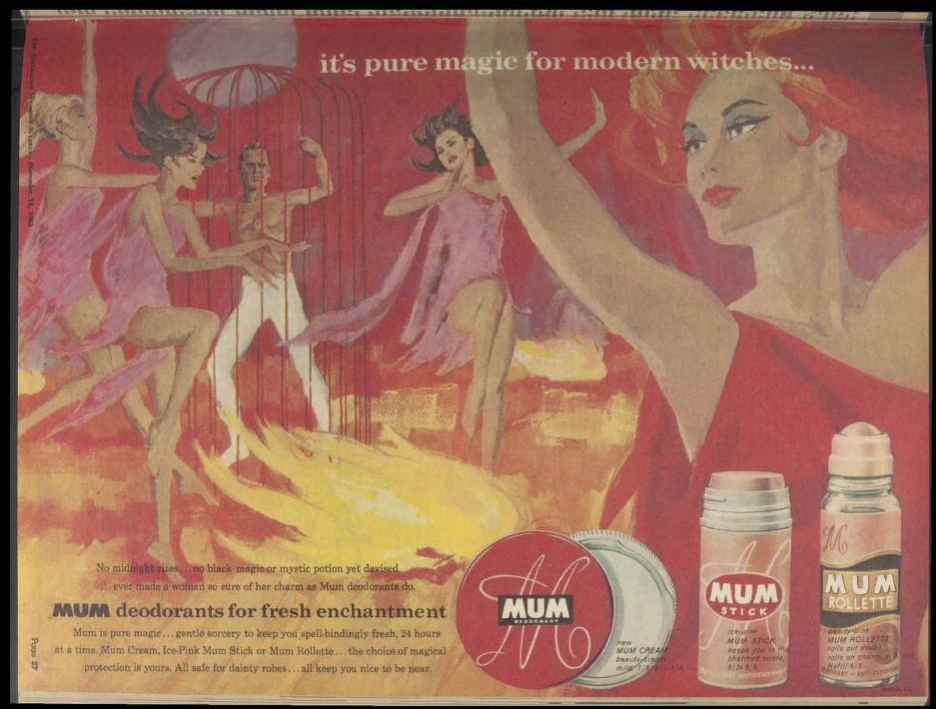
Posted By: Paul - Fri Oct 09, 2020 -
Comments (3)
Category: Holidays, Superstition, 1960s, Women
October 8, 2020
Parkinson’s Dream Weapon
How, in 1940, a Bell Labs engineer invented a guidance system for anti-aircraft guns in a dream. Source: The Bigelow SocietyA compelling example in favour of this theory concerns an engineer, David Bigelow Parkinson. The time was spring, 1940 and Parkinson was then a young engineer working at Bell Telephone Laboratories in New York City in the specialized field of electromechanical design. He was working on improving an instrument called an automatic level recorder. A small potentiometer [an instrument for measuring electromotive forces] controlled a pair of magnetic clutches which in turn controlled a pen to plot a logarithm.
Meanwhile, the top story in the headlines concerned the evacuation of hundreds of thousands of stranded Allied soldiers from the beaches of Dunkirk, France across the Channel to England. This news greatly preoccupied Parkinson's mind along with that of his work. And the two ideas came together in a dream, which he later described in an unpublished memoir:
I found myself in a gun pit or revetment with an anti-aircraft gun crew . [A] gun there. was firing occasionally, and the impressive thing was that every shot brought down an airplane! After three or four shots one of the men in the crew smiled at me and beckoned me to come closer to the gun. When I drew near he pointed to the exposed end of the left trunnion. Mounted there was the control potentiometer of my level recorder!
Parkinson realized the full significance of his dream the following morning. If his potentiometer could control the pen on the recorder, something similar could, with the right engineering, control an anti-aircraft gun. At the time, the complex mechanical systems controlling these guns were not very accurate and could not be mass-produced.
Parkinson discussed the idea that morning with his boss, Clarence A. Lovell. They worked for several days writing a report and then met with Lovell's boss. Just before this meeting, on 18 June 1940, Parkinson realized he would need a diagram to explain his ideas so made a quick sketch on a sheet of plain white typingpaper.
The company submitted a proposal for exploratory work on an electromechanical system for directing antiaircraft guns to the Army Signal Corps which was subsequently approved. An engineering model was delivered for testing to the Army at Fort Monroe MD on 1 December 1941. The result of Parkinson's dream began rolling off the assembly lines early in 1943. More than 3000 of the gun directors, designated the M-9, were built.
Many thousands of shells were fired to bring down a single aircraft with the older directors; the M9 brought the number down to around 100 shells per hit on an aircraft.
Thus Parkinson's unconscious revelation led to one of the most effective pieces of air-defense technology in World War II.
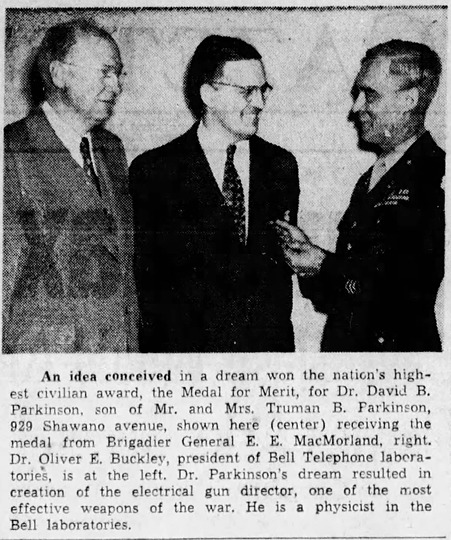
Green Bay Press Gazette - Apr 22, 1947
Posted By: Alex - Thu Oct 08, 2020 -
Comments (3)
Category: Sleep and Dreams, 1940s, Weapons
Waymarking
The Waymarking site allows the user to add a geo-tag to any object or place to make it findable by anyone else.They have their entries grouped into categories, and certainly the Oddities subgroup will be of interest to WU-vies.
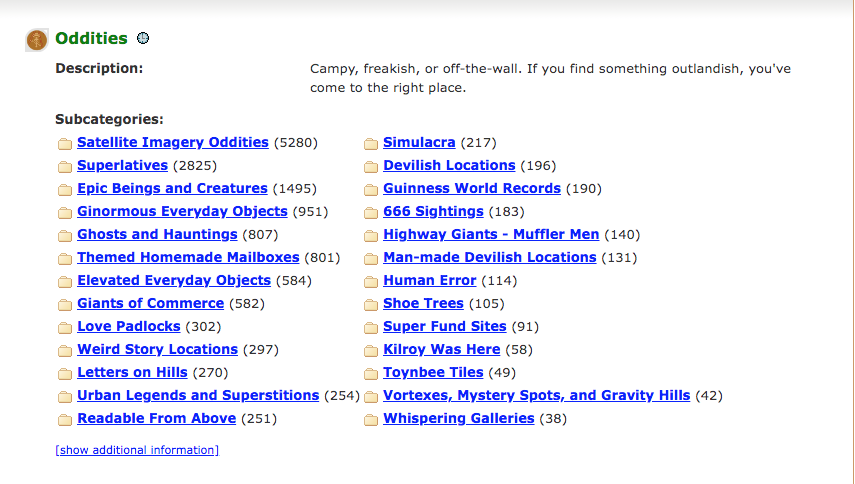
There you can find, among other things, giant commercial icons such as the one below.
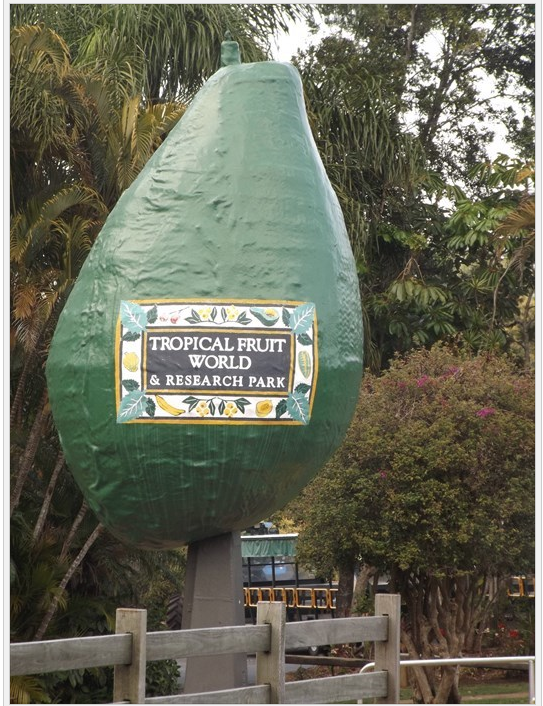
Posted By: Paul - Thu Oct 08, 2020 -
Comments (1)
Category: Food, Geography and Maps, Advertising
October 7, 2020
Human Blood Pudding
Dr. Magnus Pyke was a scientific advisor to the British Ministry of Food during World War II. In 1969, during a lecture at the Royal Institution in London, he revealed the following:At that time large amounts of human blood were collected from such people as were prepared to give it. The blood was centrifuged, the plasma put aside for parenteral injection into those victims of bombing that might need it, and the red corpuscles discarded.
Again the scientific advisers to the minister of food put forward a scheme to make use of the red-blood corpuscles, so self-sacrificingly contributed by patriotic donors, and manufacture from it black pudding for distribution on the food ration.
The curious anthropological phenomenon then emerged that although the British were prepared to consume each other's blood by vein, they considred its ingestion by mouth was a variant of cannibalism and therefore disgusting.
They could have called it Soylent Black.
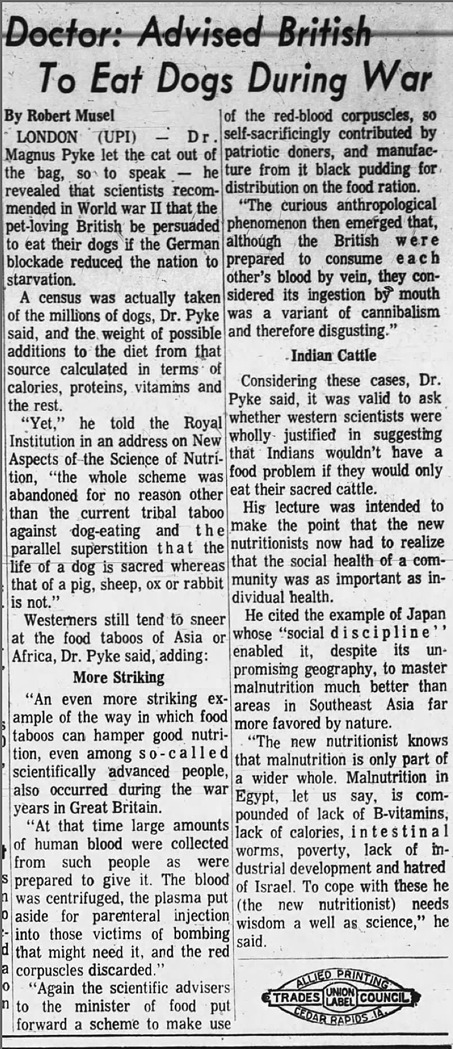
The Cedar Rapids Gazette - Dec 18, 1969
Posted By: Alex - Wed Oct 07, 2020 -
Comments (3)
Category: Cannibalism, Food, 1940s, Blood
Follies of the Madmen #490
Our televised brainwashing will turn honest citizens into criminals.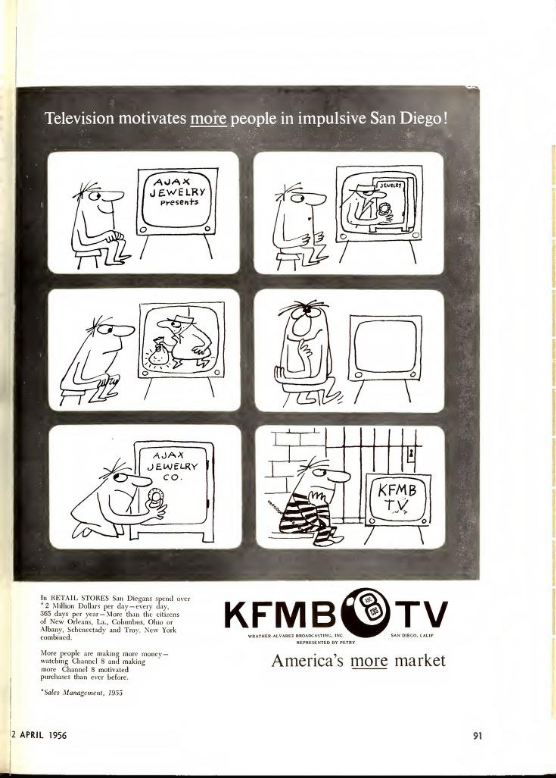
Source.
Posted By: Paul - Wed Oct 07, 2020 -
Comments (1)
Category: Business, Advertising, Crime, Propaganda, Thought Control and Brainwashing, Television, 1950s
| Get WU Posts by Email | |
|---|---|

| Who We Are |
|---|
| Alex Boese Alex is the creator and curator of the Museum of Hoaxes. He's also the author of various weird, non-fiction books such as Elephants on Acid. Paul Di Filippo Paul has been paid to put weird ideas into fictional form for over thirty years, in his career as a noted science fiction writer. He has recently begun blogging on many curious topics with three fellow writers at The Inferior 4+1. Chuck Shepherd Chuck is the purveyor of News of the Weird, the syndicated column which for decades has set the gold-standard for reporting on oddities and the bizarre. Our banner was drawn by the legendary underground cartoonist Rick Altergott. Contact Us |
